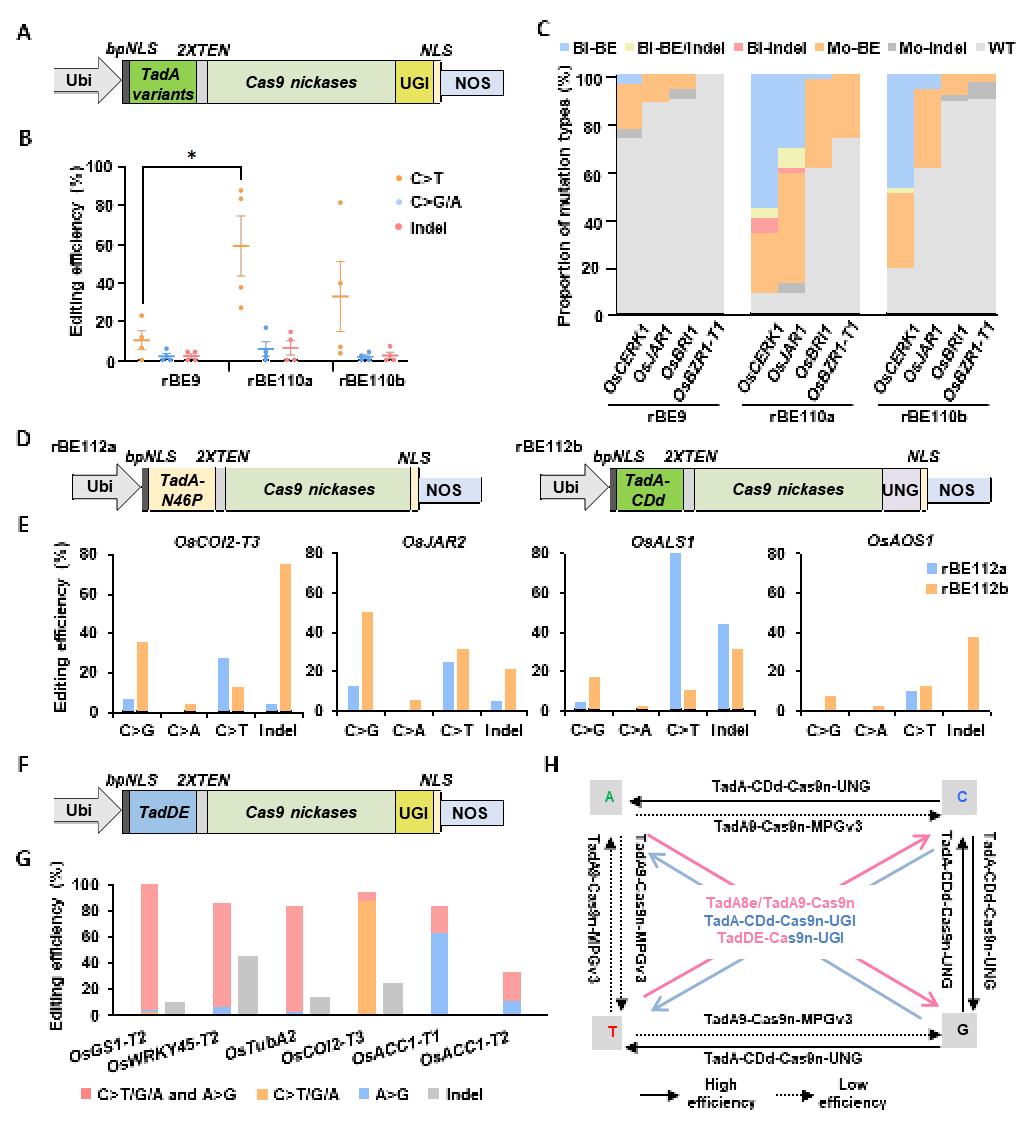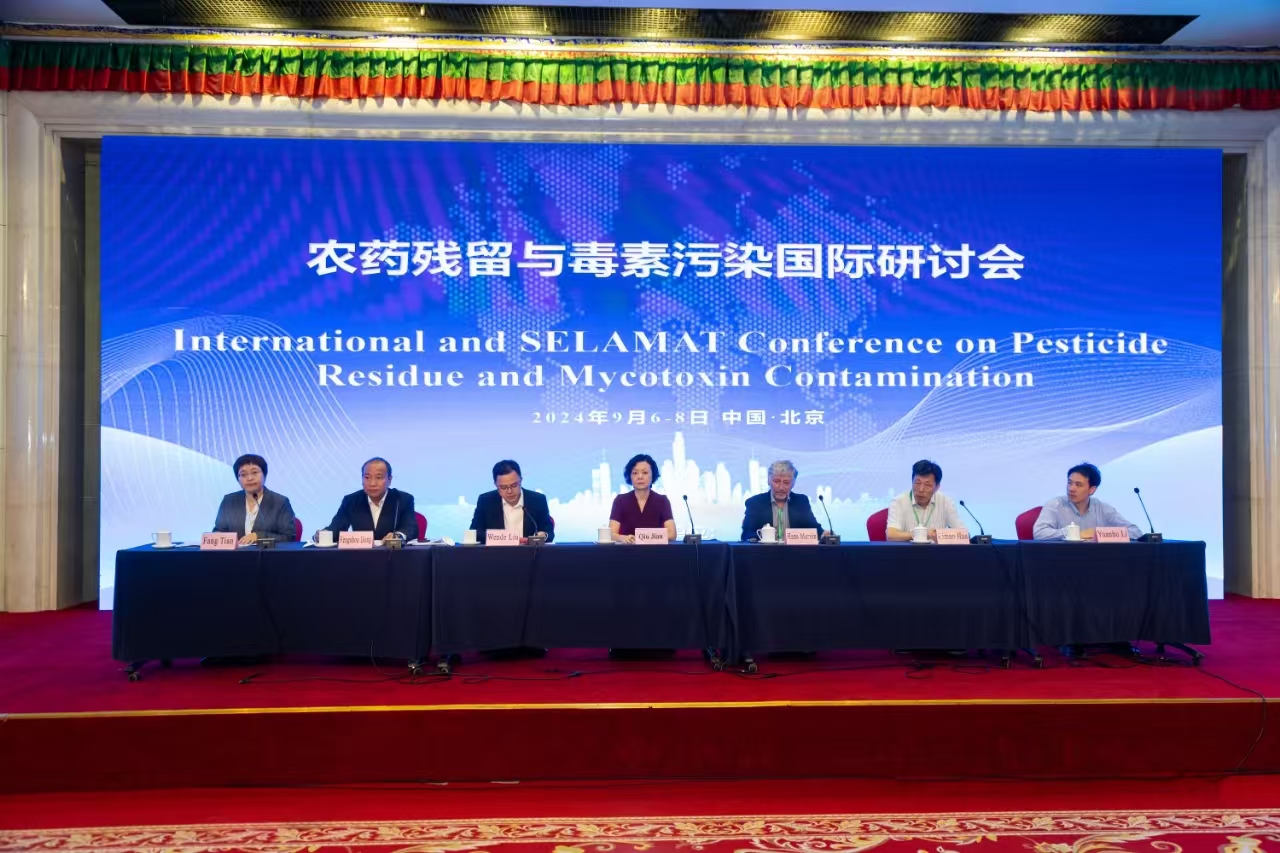Diverse nucleotide substitutions in rice base editing mediated by novel TadA variants
Recently, a paper entitled "Diverse nucleotide substitutions in rice base editing mediated by novel TadA variables" was published in the Plant Communications, which was leaded by Prof. Huanbin Zhou and his research team from the IPPCAAS. This study constructed a series of efficient novel rice base editors using TadA variants, providing a foundation for plant gene function research and molecular breeding.
CRISPR-mediated base editors have been widely used in plant functional genomics and crop genetic improvement research, especially the base edit-mediated gene evolution (BEMGE) plays great significance in the creation of new crop germplasm. The editing ability of the base editor strictly depends on the activity of various nucleotide deaminases. Compared with adenine base editors (ABEs), cytosine base editors (CBEs) and dual base editors exhibit significantly variable editing efficiency at different genomic sites in rice, significantly limiting their application.
In this study, researchers comprehensively evaluated the base editing activity of multiple engineering evolved TadA8e variants (TadA-CDd, TadA-E27R/N46L, TadA- N46P, and TadDE) in rice. The results showed that TadA-CDd and TadA-E27R/N46L achieved stronger C-to-T editing activity than previously reported hAID*Δ. In addition, compared with TadA-N46P, TadA-CDd is more suitable for developing C-to-G base editors (CGBE), which has high C-to-G editing efficiency and purity in rice. Finally, the researchers constructed a dual base editor using a single deaminase TadDE, which enables efficient C-to-T and A-to-G editing simultaneously in rice. A series of new base editors based on TadA8e variants can achieve almost all 12 types of base conversions in rice, providing new tools for plant genome editing and artificial directed evolution, and promoting gene function research and molecular breeding in rice.
Man Yu, PhD student from IPPCAAS, is the first author of this study. Prof. Huanbin Zhou and Dr. Bin Ren from IPPCAAS are the co-corresponding authors of the paper. This work was supported by the STI 2030-Major Projects and the National Key Research and the Agricultural Science and Technology Innovation Program of the Chinese Academy of Agricultural Sciences, etc.
The paper link: https://doi.org/10.1016/j.xplc.2024.100926

-
 China-Laos Training Workshop on Integrated Management of Destructive Crop Pests and Diseases Successfully held in Laos
China-Laos Training Workshop on Integrated Management of Destructive Crop Pests and Diseases Successfully held in Laos -
 New Plant Protection: New challenge and new opportunity for plant protection
New Plant Protection: New challenge and new opportunity for plant protection -
 International and SELAMAT Conference on Pesticide Residue and Mycotoxin Contamination Held in Beijing
International and SELAMAT Conference on Pesticide Residue and Mycotoxin Contamination Held in Beijing -
 CAAS President Meets Chairman of ASEAN FAW Taskforce
CAAS President Meets Chairman of ASEAN FAW Taskforce
